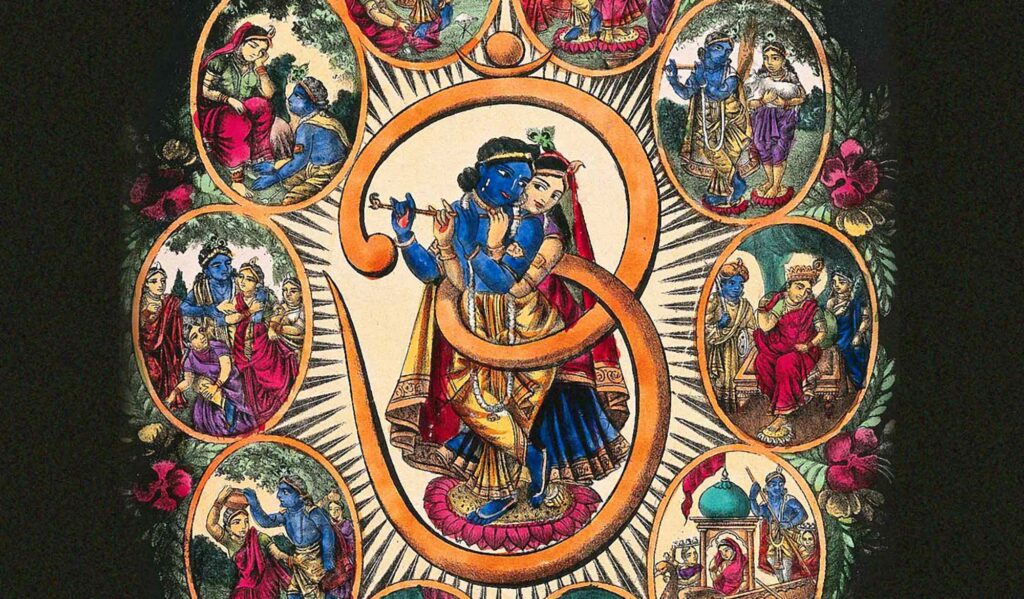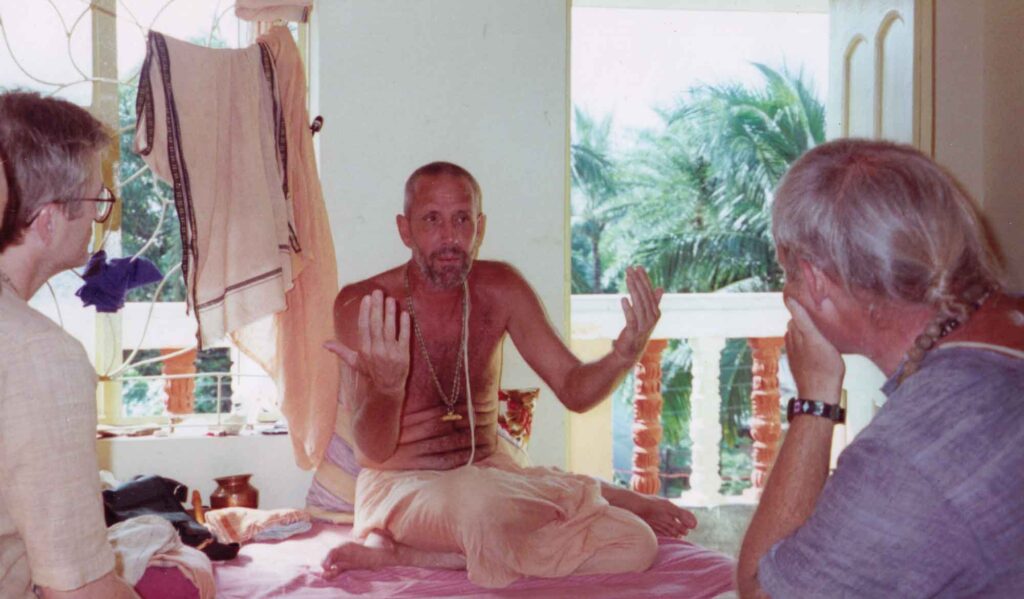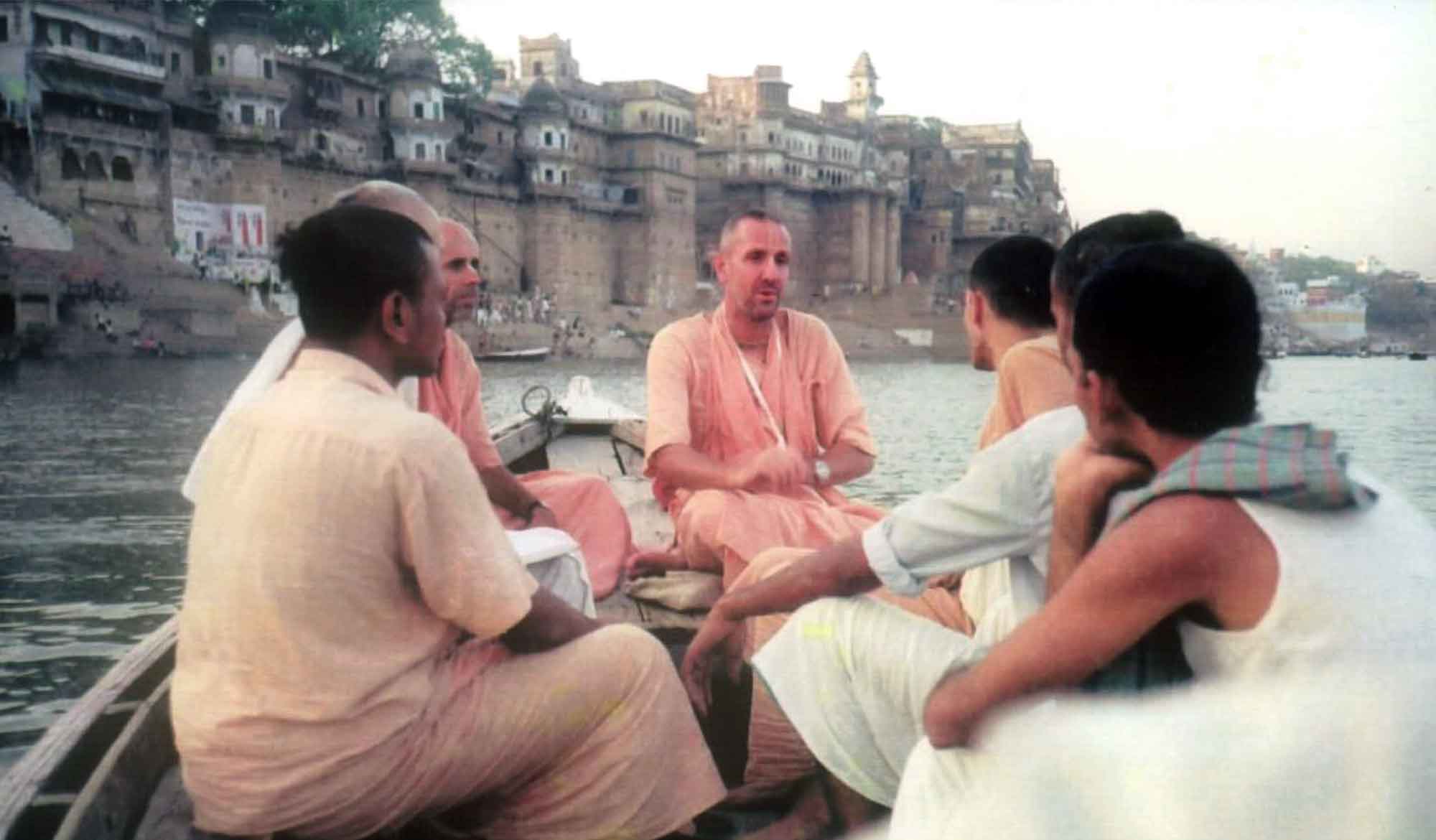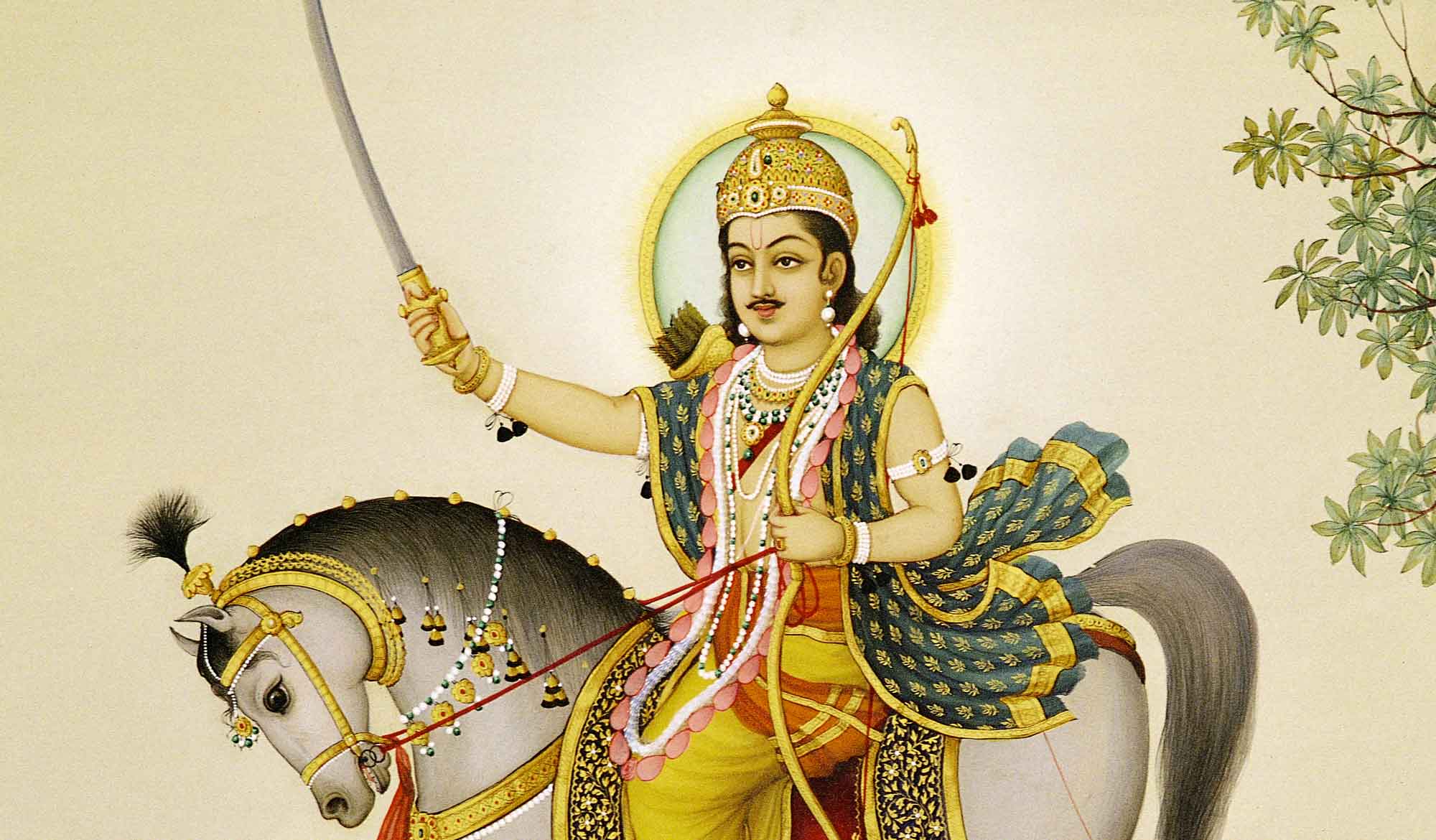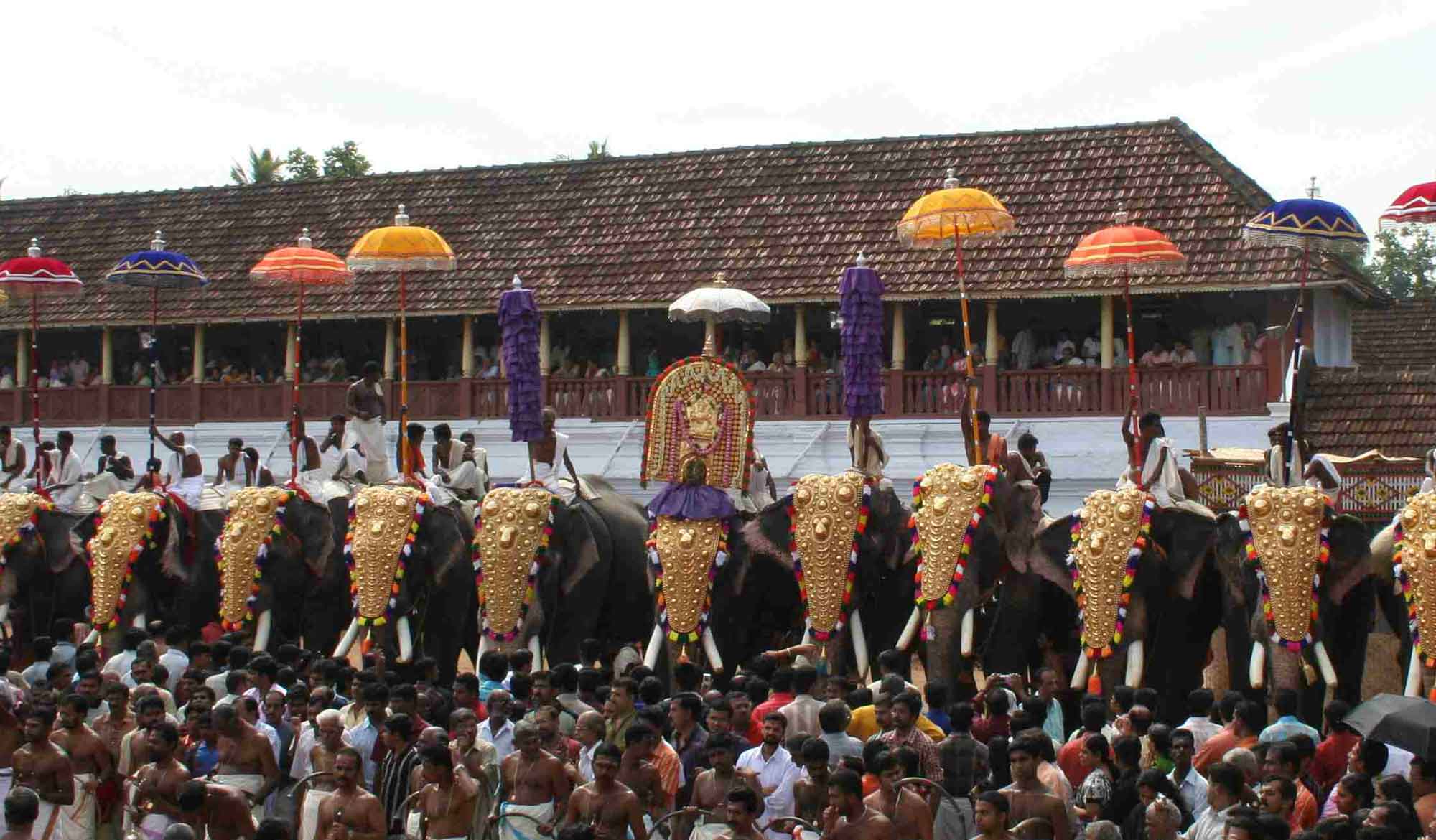by Swami B.G. Narasingha
'An Open Letter from Swami B.G. Narasiṅgha' was first published on the VNN news website on August 10th, 1999. This was a reply from Swami B.G. Narasingha Maharaja to a godbrother who had written a scathing letter to VNN complaining about Maharaja's publishing the book, 'Śrī Gāyatrī Mantrārtha Dīpikā.
Dear Taruṇa Kṛṣṇa Prabhu,
Please accept my humble daṇḍavats. All glories to Śrī Guru and Sri Gaurāṅga.
Sometime back you wrote to me your concerns about the book, Śrī Gāyatrī Mantrārtha Dīpikā in that you thought it was an offence to publish this book and that I might become the ‘guru’ of anyone who read it. Although your letter was quite rude, your language harsh, and your concerns quite eliminatory, I nonetheless took the time to assure you that the materials in the Gāyatrī book have indeed been printed in many places by our ācaryās over the centuries and that there was no need to worry because the mantras of the Gāyatrī and even their purport are self-protected in that unless the mantras are received from a bona-fide guru, one is not actually initiated. One does not become initiated by reading mantras in books.
Please forgive me if you were offended when I suggested that my godbrothers, who at an advanced age are still running here and there chasing after the flickering pleasure of sex life, would do well to control their senses before they venture to criticize the preaching work of dedicated sannyāsīs. I apologise if this statement has been the cause of your recent campaign against myself and the Gāyatrī book. Although I apologise, I am of the firm belief that, “If the shoe fits, wear it!”
Śrī Gāyatrī Mantrārtha Dīpikā (Illuminations on the Essential Meaning of Gāyatrī) has been compiled for the pleasure of Śrī Caitanya Mahāprabhu and the followers of His disciplic succession known as the Gaudiya Vaiṣṇava sampradāya. This publication presents the remarkable mādhurya (conjugal) conception of Gāyatrī as revealed by śāstra (scripture), sādhus (pure devotees), and ācāryas (bona-fide spiritual masters). When the contents of this book are examined by the serious readers, surely all will agree that the Gaudiya Vaiṣṇava conception of Gāyatrī is the summit of theistic thought. (This is a quote from the introduction of the book we are discussing)
Explaining the purpose and the validity of the Gāyatrī book to you is like a man pleading his case before a ‘kangaroo court’ – regardless of what I say, I will be condemned by you.
What surprises me the most is that when differences between devotees arise these days they immediately go for the throat, so to speak. They hurl a barrage of harsh words and offensive comments upon each other like children in a mud fight. This even takes place between godbrothers/godsisters who have been lifetime friends. It is indeed a wonder?
If you earnestly think that the production of the Gāyatrī book was improper can’t you just say so without tagging on a volume of humiliating words in an attempt to demoralize the publisher? Even if you think that I was wrong to bring out the Gāyatrī publication can’t you remember anything that I have ever done that was good? To convince others that the book is bad is it really necessary for you to remind others of my many faults? In which way do you want to build your case against me? You have failed to quote even one word of śāstra to support your opinion that the Gāyatrī mantras can never be printed in books. You have ignored all the śāstrika evidences presented to you by Professor Brzezinski in the VNN forums and, begging the question from a few Gauḍīya Maṭha sannyāsīs/ācāryas, you have squeezed out a few words of dissatisfaction from them. In my opinion you could turn a rose into a cactus.
Why, after coming in contact with Śrīla Prabhupāda, Śrīla Śrīdhara Mahārāja, and Śrīla Purī Mahārāja, do you remain so hard, harsh, and crude in your dealings with friends and godbrothers? Even if the Gāyatrī book was not bona-fide, do you think that your gurus would appreciate your manner of dealings and manner of speech?
Have I become your enemy, or the enemy of our sampradāya?
Have you forgotten the time you came to my āśrama in Kerala and you were literally on the verge of death due to your extreme illness? Have you forgotten that I took you into my room, gave you a bed, called a doctor, attended your bedpan, helped you walk to the toilet, held you when you passed stool, and gave you a bath every day for a month, because you were so sickly that you could do none of this yourself? Have you forgotten all this affectionate love which we showed you at that time and now, when you think that I have done a wrong, there is no mercy in your dealings with me? Is it like that? Are you of that type? If not, then kindly contain your opposing opinion about the Gāyatrī book to scriptural references, and leave the mud slinging and sabre-rattling aside.
I must comment before closing that in Kṛṣṇa consciousness there is no bad propaganda – all is for the good. For every devotee you have convinced not to read the Gāyatrī book, at least ten have taken an interest in it – otherwise they might never have known the book exists.
Controversy, after all, is a powerful attraction, even in Goloka. All for the good, all for the good. In this way, even the statements of the demons in the Bhāgavatam have been taken as a glorification of Kṛṣṇa.
When I read your comments against the publishing of the Gāyatrī book, I can also not help but to remember the incident wherein Rāmānujācārya, after receiving mantra from his guru and being told not to disclose the mantra to anyone least the mantra loose its potency, immediately went to the village centre, and calling everyone, he loudly pronounced the mantra for everyone to hear. Rāmānuja wanted to do good to the devotees. Rāmānuja did not disclose the Gāyatrī to everyone because everyone in South India already knows Gāyatrī (and knows the conception of Gāyatrī according to their sampradāya). Rāmānuja disclosed a mantra that was completely secret – its power unknown to the masses. He wanted to liberate everyone from material bondage and his guru became so pleased.
The difficulty in western countries is that the vast majority of devotees, even those who have chanted Gāyatrī for several decades, know little of its ontological meaning. In the best case scenario, one should learn of the meaning of the mantras from one’s guru. But in the event that the guru is not present or unable to pass this knowledge onto the disciple, then the Vedic literature and literature written in pursuance of the Vedic literature, is there to help the sincere seeker. Śrī Gāyatrī Mantrārtha Dīpikā is published in this spirit and it will thus be of great value for devotees in western countries. (It should be obvious that persons not deeply interested in the ontology and esoteric concepts of Gauḍīya Vaiṣṇavism will not find the ability to read, or even take interest in the book we are discussing.)
I hope this meets you well.
Praṇāms,
Swami B.G. Narasiṅgha
More Articles by Swami B.G. Narasingha
Banaras – The City of Light
“Banaras - The City of Light” was originally written by Śrīla Narasiṅgha Mahārāja for Clarion Call magazine in 1990. This article explains something of the history of Banaras and its significance to Hindus.
The Dawn of the Age of Love?
“Dawn of the Age of Love” was written in 2009 by Śrīla Narasiṅgha Mahārāja in response to the erroneous idea that Kalki-avatāra does not appear at the end of this Kali-yuga. Quoting previous ācāryas, he shows that this is not the case.
Guruvayur
“Guruvayur” was an article written by Śrīla B.G. Narasiṅgha Mahārāja in 1989 for ‘Clarion Call’ magazine, Vol.2, issue 3. Narasiṅgha Mahārāja explains the history of the famous temple in Kerala as well as some of its peculiarities.

